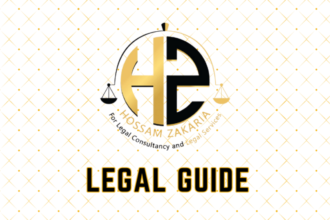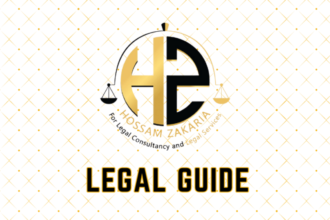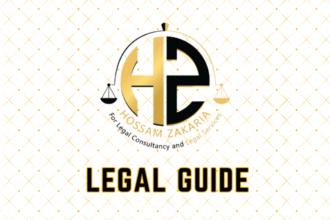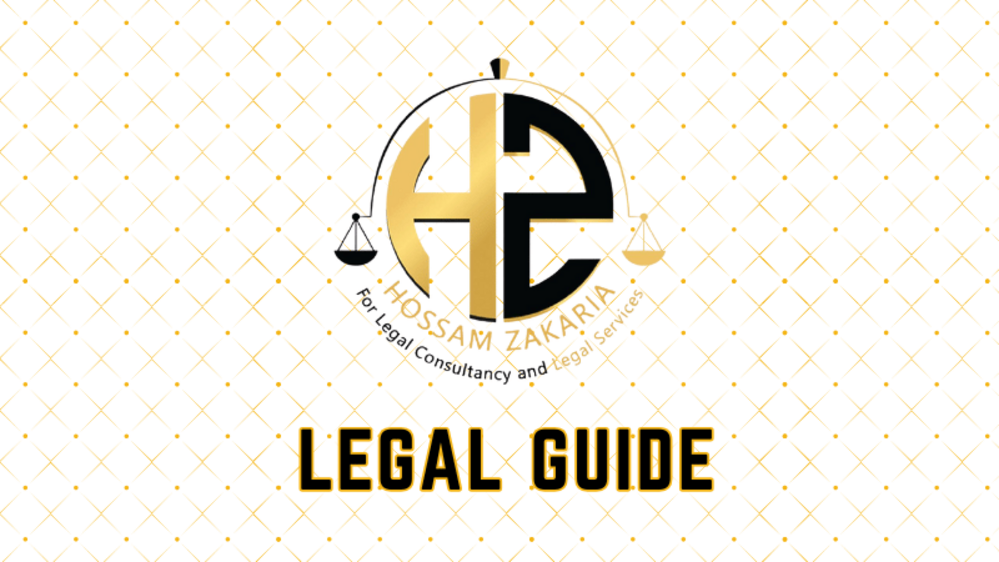Introduction: Navigating International Arbitration in the UAE’s Dynamic Legal Landscape
As the United Arab Emirates (UAE) continues to evolve into a preeminent global business hub, the ability to resolve cross-border disputes swiftly, fairly, and efficiently has never been more critical. International arbitration has emerged as the preferred mechanism for dispute resolution, particularly for multinational corporations, financial institutions, and entrepreneurs active throughout the Middle East, Asia, Africa, and beyond. The UAE’s legal framework for arbitration saw significant refinement in recent years—most notably through Federal Law No. 6 of 2018 concerning Arbitration, and a wave of updates being implemented for 2025. These developments underscore the UAE’s commitment to international best practices, transparency, and enforceability, which are crucial for foreign investment and confidence in the nation’s commercial sector.
This article examines the latest UAE law 2025 updates in international arbitration and cross-border dispute resolution, offering authoritative insights, compliance strategies, and a forward-thinking perspective for executives, HR professionals, legal practitioners, and businesses operating in or with the UAE. Whether navigating complex commercial contracts, considering forum selection, or developing compliance frameworks, understanding these legal updates is essential for effective risk management and business continuity.
Table of Contents
- Overview of the UAE Arbitration Legal Framework and 2025 Updates
- Key Features and Provisions of the UAE Arbitration Act
- Critical Legal Updates for 2025: What Has Changed?
- Practical Impact on Cross-Border Disputes and International Businesses
- Case Studies and Hypothetical Scenarios
- Risks of Non-Compliance and Strategic Recommendations
- Compliance Roadmap and Best Practices for UAE Businesses
- Conclusion: The Future of International Arbitration and UAE’s Legal Environment
Overview of the UAE Arbitration Legal Framework and 2025 Updates
The UAE’s Commitment to Arbitration Excellence
In recent decades, the UAE has built a reputation as a sophisticated arbitration center, offering modern facilities and internationally respected arbitral institutions such as the Dubai International Arbitration Centre (DIAC), Abu Dhabi Global Market Arbitration Centre (ADGMAC), and the DIFC-LCIA Arbitration Centre (prior to its merger into DIAC in 2022). Arbitration under UAE law is primarily governed by Federal Law No. 6 of 2018 on Arbitration (“Arbitration Act”), which is modeled closely on the UNCITRAL Model Law, providing a familiar framework for global parties.
The Arbitration Act and its 2025 amendments reinforce the enforceability of arbitration agreements, clarify procedural mechanisms, enhance the efficiency of proceedings, and strengthen the UAE’s position as a seat for international disputes. The approach is reinforced by the UAE’s status as a signatory to the New York Convention 1958 on the Recognition and Enforcement of Foreign Arbitral Awards, further supporting the recognition of UAE-seated and foreign arbitral awards globally.
- Official Sources: UAE Federal Law No. 6/2018; Legislation updates from the UAE Ministry of Justice; Federal Legal Gazette notices.
Visual Placement Suggestion
Suggested: Flow diagram detailing the lifecycle of a typical arbitration proceeding under UAE law (from arbitration agreement to final award enforcement).
Key Features and Provisions of the UAE Arbitration Act
1. Scope and Applicability
The Arbitration Act applies to all arbitrations seated in the UAE, as well as those conducted abroad if the parties agree to apply UAE law. It governs commercial, civil, and certain administrative disputes, with some exceptions (e.g., criminal, family, or matters involving public order).
2. Arbitration Agreements
To be valid, arbitration agreements must be in writing and explicitly reference the intention to submit disputes to arbitration. Noteworthy is the reinforced principle of party autonomy—permitting parties substantial latitude to craft procedures suiting their commercial realities, subject only to mandatory legal provisions.
3. Appointment and Challenge of Arbitrators
The Act provides for the number, qualifications, and manner of selecting arbitrators. Parties may agree on procedures; failing agreement, the UAE courts can appoint arbitrators upon application. Arbitrators must be independent, impartial, and (from 2025) cannot act as both counsel and arbitrator in the same or related dispute, as per Federal Decree update.
4. Jurisdiction of the Arbitral Tribunal
Consistent with international best practice, the Tribunal may decide on its own jurisdiction (Kompetenz-Kompetenz doctrine) and rule on challenges to its mandate. Objections to jurisdiction must be raised promptly to prevent waiver.
5. Conduct of Proceedings
The Act affords procedural flexibility—but with certain minimum standards, including:
- Equal treatment and due process for parties
- Notice and opportunity to present case
- Rules on hearings, evidence, and default procedures
6. Arbitral Awards
Awards must be written, reasoned (unless otherwise agreed), and signed by the arbitrators. The 2025 changes introduce strengthened requirements for valid awards, including explicit statements on timelines and transcript annexures for complex cases. Awards have binding force and can only be challenged on limited procedural grounds, primarily for breaches of due process or public policy.
7. Recognition and Enforcement
The Act ensures that arbitral awards—whether domestic or international—are enforceable through UAE courts, except in restricted circumstances (e.g., incapacity, invalid agreement, excess of mandate, public order). The New York Convention regime applies for foreign awards.
Comparison Table: Key Provisions – Before and After 2025 Updates
| Aspect | Pre-2025 Law | 2025 Update |
|---|---|---|
| Arbitrator Qualifications | No clear prohibition on dual roles | Explicit ban on acting as both counsel and arbitrator in related cases |
| Time Limit for Awards | No default statutory timeline; parties agree | Default 12-month limit for award issuance (extendable by consent) |
| Electronic Communications | Permitted but less regulated | Detailed provisions on e-signatures and remote hearings |
| Challenge Procedures | General requirements | Enhanced grounds for conflict of interest and fee disclosure |
| Enforcement Requirements | Judicial review mainly procedural | Clarified criteria for summary enforcement and streamlined challenge process |
Critical Legal Updates for 2025: What Has Changed?
Key 2025 Updates Under Federal Decree and Cabinet Resolutions
The 2025 legislative amendments, outlined via the Federal Decree No. 24 of 2024 Amending Provisions of Federal Law No. 6/2018 (published in Federal Legal Gazette, December 2024), introduce several pivotal changes:
- Default Timelines for Award Issuance: In the absence of party agreement, arbitrators must render awards within 12 months of tribunal constitution (extendable once by 6 months upon consent), minimizing delays and increasing certainty.
- Remote Hearings and E-Signatures: New provisions enable fully remote or hybrid hearings and require arbitral institutions to accept e-signatures and digital document exchange as standard.
- Arbitrator Duties and Conflicts: Reinforced obligations of independence, neutrality, and full fee disclosure. Arbitrators failing such duties face disqualification and financial penalties.
- Institutional Developments: DIAC and ADGMAC required to implement advanced case management portals and appoint bilingual case managers for cross-border disputes.
- Enforcement Reforms: Streamlined post-award procedures in UAE courts and simplified exequatur for arbitral awards, including a 60-day maximum period for recognition decisions.
Visual Placement Suggestion
Suggested: Compliance checklist infographic summarizing the new steps arbitrators and parties must take under the 2025 legislative update.
Practical Impact on Cross-Border Disputes and International Businesses
Why These Changes Matter
The 2025 updates substantially enhance the efficiency and credibility of the UAE as a seat for international arbitration, giving businesses greater predictability and reducing scope for tactical delay. Key practical impacts include:
- Contract Drafting: Parties must review and, where possible, update arbitration clauses in new and existing contracts to align with latest procedural provisions.
- Choice of Law and Forum: Greater confidence in choosing the UAE as arbitrational seat, given tightened timelines and digital efficiency.
- Enforceability: Faster recognition of awards (domestic and foreign) permits earlier relief and reduced enforcement risk.
- Arbitrator Selection: Stricter conflict of interest rules mean organizations should conduct deeper due diligence on proposed arbitrators.
Example: Real-World Application
A UAE construction company enters into a joint venture with an EU partner, including an arbitration clause referencing DIAC under UAE law. Under the 2025 regime, any future dispute will benefit from expedited hearings, trusted digital communication, and a streamlined enforcement process. Awards rendered are enforceable both in the UAE and (via the New York Convention) internationally—fundamental for cross-border projects.
Strategies for HR and Executive Stakeholders
- Ensure continuity in dispute management policies, especially where expatriate or cross-jurisdictional HR contracts invoke arbitration.
- Build in explicit digital procedures for document management and the conduct of arbitrations.
- Align legal/contract teams with institutional case management updates to avoid procedural problems.
Case Studies and Hypothetical Scenarios
Case Study 1: Non-Compliance with Updated Procedural Timelines
Scenario: A UAE-registered technology company and its Asian partner agree to arbitration in their contract (signed in 2023). A dispute arises in 2025. The arbitral tribunal fails to issue an award within the new statutory 12-month period and neglects to obtain party consent for extension.
Outcome: The aggrieved party challenges the award’s validity in court. Under the amended law, UAE courts may refuse enforcement due to non-compliance with the timeline, highlighting the risk of default and emphasizing the need for updated arbitration clause templates.
Case Study 2: Digital Evidence and E-Signature Acceptance
Scenario: Two multinational companies conduct arbitration remotely, with all communication and evidence submitted electronically. One party then contests the procedural validity.
Outcome: Per Federal Decree No. 24/2024, the tribunal’s reliance on electronic signatures and filings is explicitly upheld, creating new precedents for remote and hybrid arbitrations.
Case Study 3: Enhanced Arbitrator Conflict Checks
Scenario: A party discovers mid-proceedings that an arbitrator is simultaneously acting as counsel in a related dispute.
Outcome: Under 2025 rules, the arbitrator must disclose the conflict or face immediate removal and possible penalties. The institution will need to appoint a replacement, but the integrity of the proceedings is preserved, minimizing costly delays.
Risks of Non-Compliance and Strategic Recommendations
Risks of Non-Compliance
- Enforcement Failure: Courts may refuse to recognize or enforce awards issued in breach of updated procedural requirements.
- Costly Delays: Outdated contractual clauses or failure to embrace digital procedures can lead to procedural challenges, increasing time and resource commitments.
- Reputational Damage: Businesses viewed as non-compliant with the latest arbitration standards may undermine commercial relationships and lose competitive advantage.
- Financial Penalties: Arbitrators and parties failing mandatory disclosure requirements risk fines, disqualification, and litigation exposure.
Strategic Recommendations
- Immediate Contract Review: Conduct a comprehensive audit of all existing contracts to ensure arbitration clauses reflect new procedural requirements (especially timelines, electronic communications, and institution-specific rules).
- Education and Training: Develop internal training programs for legal, HR, and contract managers outlining the amended law, updated institutional rules, and digital conduct expectations.
- Institutional Collaboration: Engage proactively with arbitral institutions to understand case management updates and seek guidance when designing bespoke procedures.
- Technological Readiness: Invest in secure digital platforms for evidence storage, communication, and e-signature collection to facilitate seamless remote arbitrations.
Visual Placement Suggestion
Suggested: Table comparing risks and mitigation actions for different stakeholders: businesses, legal counsel, and arbitrators.
Compliance Roadmap and Best Practices for UAE Businesses
A Stepwise Approach to Legal Compliance in International Arbitration (2025)
| Step | Description | Responsible Parties |
|---|---|---|
| 1. Contract Audit | Identify and review existing contracts for arbitration clause compliance | Legal, Contract Managers |
| 2. Clause Redrafting | Update or appendarbitration clauses to reflect new time limits, e-communications, institutional preferences | Legal Advisors |
| 3. Team Training | Internal education on procedural updates, conflict of interest disclosure, and digital processes | HR, Training Leads |
| 4. Stakeholder Liaison | Proactive communications with arbitral institutions, gather guidance and update internal handbooks | General Counsel, External Counsel |
| 5. Technology Integration | Implement approved platforms for secure digital evidence, remote hearings, and e-signatures | IT, Compliance Teams |
| 6. Monitor Updates | Continuous monitoring of further legal changes, updating policies as required | Compliance, Risk Management |
Best Practices Checklist
- Always specify seat and institution in arbitration clauses
- Define timeframes and permitted forms of communication in writing
- Conduct due diligence on arbitrators for potential conflicts or dual roles
- Instructions for employees regarding communication and evidence handling in disputes
- Maintain periodic reviews in response to new ministerial circulars or federal decrees
Conclusion: The Future of International Arbitration and UAE’s Legal Environment
The UAE’s ongoing reforms to its arbitration framework, particularly through the 2025 legislative updates, reaffirm its status as a premier regional and global forum for commercial dispute resolution. The streamlined procedures, enhanced digitalization, and reinforced standards for arbitrator independence directly address many traditional pain points in cross-border disputes—making the UAE’s legal environment more attractive, reliable, and business-friendly than ever before.
For businesses and practitioners, these advances translate into lower risk, greater efficiency, and improved enforcement prospects when choosing the UAE as a seat for international arbitration. Nevertheless, to maximize these benefits, organizations must proactively update contractual documents, internal policies, and compliance practices to reflect the latest law. Forward-looking engagement with discovered legal updates is no longer optional; it is a fundamental component of risk mitigation and sustainable success in today’s transnational commercial landscape.
Staying ahead of these trends will not only ensure compliance but will also secure a competitive advantage for organizations seeking dispute resolution solutions that reflect international best practices and local reliability.



